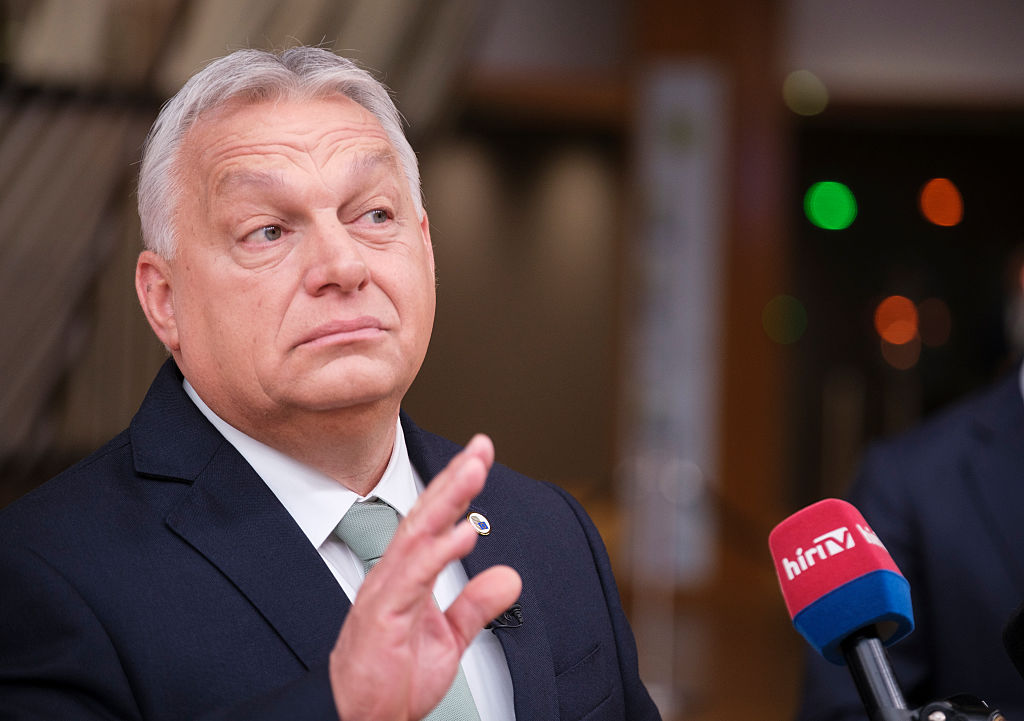Lisbon’s Elevador da Glória has long been one of the Portuguese capital’s most beloved landmarks. It has now become infamous. What happened on September 4 was emblematic: The funicular, which had been inspected that very morning and certified it—including a declaration that its cable had “263 days” of life left—hurtled down its hill nonetheless, killing sixteen people and wounding over twenty. It is Portugal’s bitterest disaster in almost a quarter of a century. The Entre-os-Rios disaster — when a 114-old-bridge over the Douro collapsed in 2001, killing 59 people — earned a spot in the national conscience as a synonym of government sclerosis. So will now September 4.
What happened? A government inquiry is on its way, but what we do know is that, a few years ago, the Lisbon City Council diverted €4 million from transport maintenance to fund the useless Web Summit. Of course, political exhibitionism has long mattered far more than civic care. But with local elections next month, not many voters in Lisbon will be eager to ignore how the current mayor, former EU Commissioner Carlos Moedas, loudly demanded the resignation of Infrastructure Minister Jorge Coelho when Entre-os-Rios Bridge collapsed. On that occasion, Moedas didn’t wait to ask for accountability. Now, he was hardly heard of.
Portugal’s crisis of governance is multidimensional, however. This summer Iberia endured its worst wildfire season in history: In the entire EU, over 1,000,000 hectares have burned—an annual record—and Portugal alone lost nearly 274,000 hectares. The total burned area is four times the average of the last 19 years; the number of fires, nearly double. While the country was ravaged by flames, firefighters died, and civilians used garden hoses to protect their homes, the PM was smiling to the cameras—laughing and drinking at his party’s big August feast. Should he have played a lyre?
Of course, it isn’t just that the political class seems incapable or, frankly, uncaring. The Portuguese cannot help but notice how nothing seems to work anymore. If the landmarks tourists fret over are falling apart, what isn’t? In the experience of the ordinary citizen, not much. Following the abolition of the border services by former Prime Minister António Costa, the country was overwhelmed by mass immigration in ways previously unseen in its history. The government didn’t just let them in; it had no idea how many entered. When right-wing opposition leader André Ventura first claimed the country was well on its way to having a million immigrants, he was laughed at by the press. Months later, the government recognised that the number was far higher than even Ventura’s own estimate. The chaos was such that it turned out there were 10,000 registered immigrants in a 400 meter long street in Lisbon. One three story building had 1,400 registered residents.
This both adds up to and causes the seemingly unstoppable implosion of public services. Schools don’t work; there aren’t enough teachers. This year, 1.4 million Portuguese students couldn’t attend at least one class because there was no one to give it. Hospitals are falling apart, too. Chronic underfunding, brain drain, staff shortages, and infrastructural decay all mean that Portugal is increasingly a country where healthcare is a luxury, not a right. Urgent patients are forced to wait for as much as 9 hours on average; crucial emergency services are now closing due to strikes almost every week; mothers are dying in ambulances as maternity services close or lack sufficient staff. For the moment, Portugal’s establishment is still hoping that the people’s patience will last forever. That is quite the bet.
Democratic or not, no system of government can hope to survive if it won’t deliver results. Like in the last decades of Eastern European socialism, a sense of hopelessness seems to be haunting the Iberian nation. Nothing seems to work anymore, and no one seems to be doing anything about it; the establishment clearly lacks the ability, the resources, or indeed the will to stop the bleeding and revert the general collapse. To this generation of Instagram politicians, the only thing that actually matters is optics. Not competence, but the illusion of competence.
Of course, most of these problems are not exclusively Portuguese at all. They’re European. If so much about modern Portugal looks and sounds like the last years of Bulgaria under Zhivkov’s surrealist-absurdist regime, so too the broader EU appears unmistakably late Soviet. Following two decades of what will certainly be remembered by future historians as Europe’s own “Era of Stagnation”, the Union’s economy is now visibly falling apart—the rising odds of France begging the IMF for a bailout or Friedrich Merz’ confession that the federal government can no longer afford the welfare perks Germans grew used to make that plain enough.
Like the USSR pre-collapse, the EU’s leadership isn’t just out of touch; it seems wholly inadequate for the heavy responsibilities it carries. Latter-day eurocrats are shallow, vapid, and inexperienced. They believe in nothing other than self-preservation. Most have never built anything or stood up for anything. Adenauer had resisted the Nazis; de Gaulle fought them in the field of battle. But how about our generation of leaders? Few would entrust them with running a corner shop, never mind nations or a whole continent. And, perhaps more crucially, like the USSR in the 1980’s, the EU is a prophet whose religion has been refuted and abandoned by everyone else. The USSR died when Marxism-Leninism lost the ability to inspire. So, too, will the EU now that its own gospel — that of post-national, post-historical, liberal globalism — gave way to a new era.
Back in 1979, Margaret Thatcher mobilised an exhausted and disillusioned British public with the slogan “Labour Isn’t Working”. Well, be it with Portugal or Europe more generally, it seems that whatever we’ve been doing as of late isn’t working either. Will Europeans stand for it? Or will they stand up to it?





With the Middle East ablaze and the world in conflict, Europe must rethink its energy strategy — now